Life
Sign up for our newsletter
We summarize the week's scientific breakthroughs every Thursday.
-
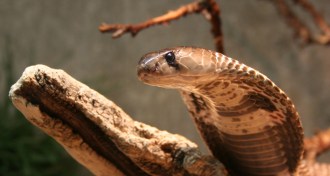 Health & Medicine
Health & MedicineSnakebite test correctly IDs attackers in Nepal
A new test that swabs for traces of snake DNA around bite marks can identify the guilty serpent and may improve treatments.
By Nathan Seppa -
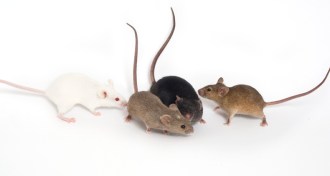 Genetics
GeneticsGenes influence Ebola’s impact
A study in a diverse strain of mice shows how the effect of an Ebola infection can depend on genes.
By Meghan Rosen -
 Animals
Animals‘Animal Weapons’ examines evolution of natural armor
Biological arms races have led to the evolution of horns, tusks and other extreme armament in the natural world.
-
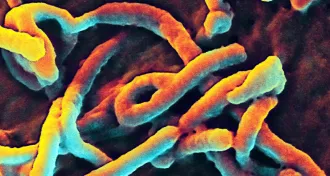 Life
LifeEbola virus edits its own genetic material
Both the Ebola and Marburg viruses edit their genetic material when infecting cells. The viruses may make proteins currently unknown to scientists.
-
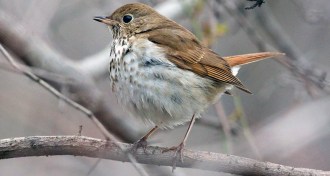 Animals
AnimalsHermit thrushes, humans share some musical basics
The melodious birds share a humanlike bias for notes mathematically related by simple integers.
-
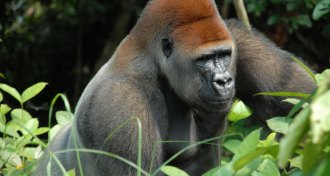 Life
LifeGut microbes less diverse in humans than in apes
An analysis of gut bacteria shows that humans have evolved to possess less diversity in microbe populations.
-
 Animals
AnimalsDog disease threatens Siberian tigers
Canine distemper virus poses a particular danger to small groups of the big cats.
-
 Life
LifeHummingbirds take stab at rivals with dagger-tipped bills
Sharp points on the bills of male long-billed hermit hummingbirds may have evolved as weaponry.
By Susan Milius -
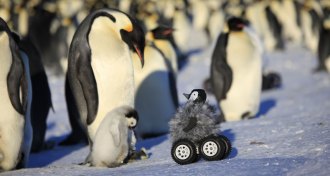 Animals
AnimalsRemote-controlled rover doesn’t spook penguins
Remote-controlled rovers get close to skittish penguins without bothering them; a chick disguise wins over the wariest birds.
-
 Climate
ClimateMelting ice forces walrus detour
Warming temperatures and shrinking summer ice cover have forced the animals to seek solid ground during feeding season.
-
 Neuroscience
NeuroscienceA species of invention
From early humans painting on cave walls to modern-day engineers devising ways to help people move better, the drive to innovate is simply part of who humans are.
By Eva Emerson -
